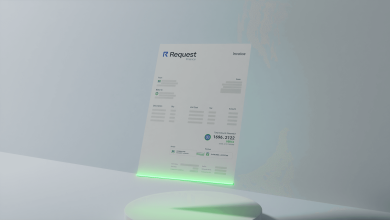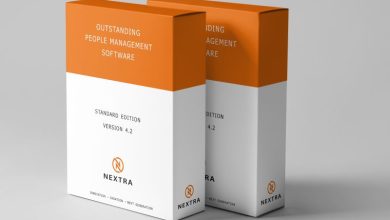
Malaysia is one of Asia’s most important business centers. It is the world’s 35th largest economy and the third-largest in Southeast Asia. The oil and gas industry in Malaysia is one of the most competitive in the world. So it’s no wonder that so many companies are growing their operations there. However, there are crucial Malaysian tax rules to understand to mobilize personnel to the nation.
Taxable income is compute in Malaysia using both flat and progressive rates, depending on how long employees. Have been employ and what sort of job they undertake.
To decide which category they belong to, expatriates and company owners must first grasp Malaysia’s tax structure through accounting software sql.
Malaysia’s taxation principle is as follows:
Malaysian taxation is based on a territorial system. This implies that only money earn in Malaysia is taxes, regardless of where the ex-pat is paid.
If an ex-pat is a tax resident of two nations, they may be require to pay taxes in both countries on the same income, resulting in double taxation in the same year. Malaysia, on the other hand, has signed Double Taxation Treaties with over 70 nations to prevent taxing people twice.
Income from some businesses where Malaysia does not employ a territorial tax system, such as banking and air transport, is taxes on a worldwide basis.
Exemptions from the tax system – ex-pats may be eligible for tax exemptions if they are not classified as Malaysian tax residents or if their work is for less than 60 days.
Malaysian tax returns:
Malaysia’s fiscal year spans from January 1 to December 31. All residents who are tax must file a tax return by April 30th of the following year.
Failure to do so may result in a 10% increase in the tax due, as well as a disciplinary cost.
Expats must fill out a Yearly Remuneration Statement (EA form) to complete a tax return, which is provided by the end of February each year. They must specify the total amount they were paid for the calendar year on this form.
Company Tax Requirements in Malaysia:
Understanding a company’s tax requirements in Malaysia enables tax compliance to go more smoothly.
Running your business as a distinct legal entity through a private limited company offers advantages such as personal financial protection and finance, but it also necessitates adherence to Malaysian rules and regulations.
Understanding each firm’s tax requirements can set your mind at ease so you can focus on building your company.
Corporate tax:
Corporate tax is administer by the Revenue Tax Act 1967, which applies to all Malaysian firms for chargeable income obtain from Malaysia. Such as company earnings, dividends, interests, rents, royalties, premiums, and other income.
Newly registered businesses must provide an estimate of tax due within three months of starting operations and pay monthly installments by the 15th of each month beginning in the sixth month of the assessment year.
A corporation must file its tax with the LHDN using the e-filing system within 7 months after the assessment year has concluded. If the actual tax liability exceeds the taxes paid base on an estimate, the remaining tax due must be paid.
Withholding taxes:
Withholding taxes is only relevant if your firm is paying a non-resident individual or corporation (known as the payee) for their services. And a portion of the payment is withheld and sent to the LHDN as income taxes.
According to Sections 107A and 109 of the Income Tax Act 1967, each payment type has a distinct tax rate. You can ask for a refund of overpaid withholding tax under the Double Taxation Agreements (DTA).
The withholding taxes must be paid within one month of the non-resident payee’s payment.
Tax on wages:
A firm with workers must keep a proportion of the employees’ income, including salary, commission, bonus, incentives. And other forms of compensation, and pay it to LHDN as a Monthly Tax Deduction (MTD) on behalf of taxable employees.
This deduction, together with EPF, SOCSO, and EIS, will be shown as PCB on the employee’s paystub. If an employee pays a donation provide under Islamic law for charitable and religious purposes. The payroll tax can be subtract.
PCB may be calculate using either the MTD timetable or the Computerize Calculation Method on the E-CP39 site.
For allowances issued the previous month, the PCB must be paid to LHDN by the 15th of each month by maintaining it on the SQL payroll.
Duty on stamps:
When instruments, such as written legal, commercial, and financial papers, are involve, your organization must pay Stamp Duty. Partnership agreements and mortgage agreements are examples of taxable instruments.
Stamp Duty is divide into two types: one with a constant rate regardless of the amount mentioned in the instrument. And the other with a variable rate base on the nature of the instrument and the value provide. You may request Stamp Duty relief in specific circumstances, aside from those where Stamp Duty is exempt.
The Stamp Act of 1949 contains all information on taxable instruments and exemptions. The First Schedule lists the instruments that are subject to Stamp Duty as well as the rates. Whereas the Third Schedule lists the people who must pay Stamp Duty.
Sales taxes is a one-time tax levied on taxable products make in Malaysia or import into Malaysia by a taxable person. And is due when the items are sold, dispose of, or first use for a total selling value of more than RM500,000 in 12 months. Certain produced or import commodities qualify for exemptions.
The following products will be exclude from import duty. And sales tax until a later date to be notify, beginning March 23, 2020:
- Face mask
- Medical Machinery
- Lab Equipment
- PPE Kits
- Disposable medical items
Service taxes, which is not to be confuse with a service fee, is levied on taxable services in Malaysia. Such as lodging, gambling, and telecommunications, deliver by a taxable person with a total value of more than RM500K in 12 months.
The criterion for the F&B industry, on the other hand, is a total value of more than RM 1,500K in 12 months. Credit card services have a separate rate and no threshold.
SST is govern by several laws. If the prerequisites are complete, you must register your firm for SST.
RPGT (real property gains tax):
Real property gains tax applies only if your firm profits from the sale of chargeable assets. Such as residences, commercial buildings, farms, and unoccupied lands, as well as shares in real estate companies.
The taxable gain is calculate by subtracting the disposal price from the purchase price. The tax rates fluctuate depending on the holding term of the chargeable assets. And are govern by the Real Property Gains Taxes of 1976.
Within 60 days after the date of disposal, you and the buyer of the chargeable assets must file the tax. The acquirer will contribute a portion of the acquisition price, which will be subtract from the RPGT due.
After completing the tax, taxable cases will receive an assessment notification; non-taxable cases will receive a certificate of non-chargeability. You must then pay the RPGT within 30 days of receiving the assessment letter.
Aside from the taxes listed above, your firm may be subject to customs duty, excise duty, property taxes. And other taxes, depending on your industry and kind of operation.
Furthermore, keep in mind that Labuan has a distinct taxes system from the rest of Malaysia. As a business, fulfilling this requirement should not be a roadblock to your development or operations.



